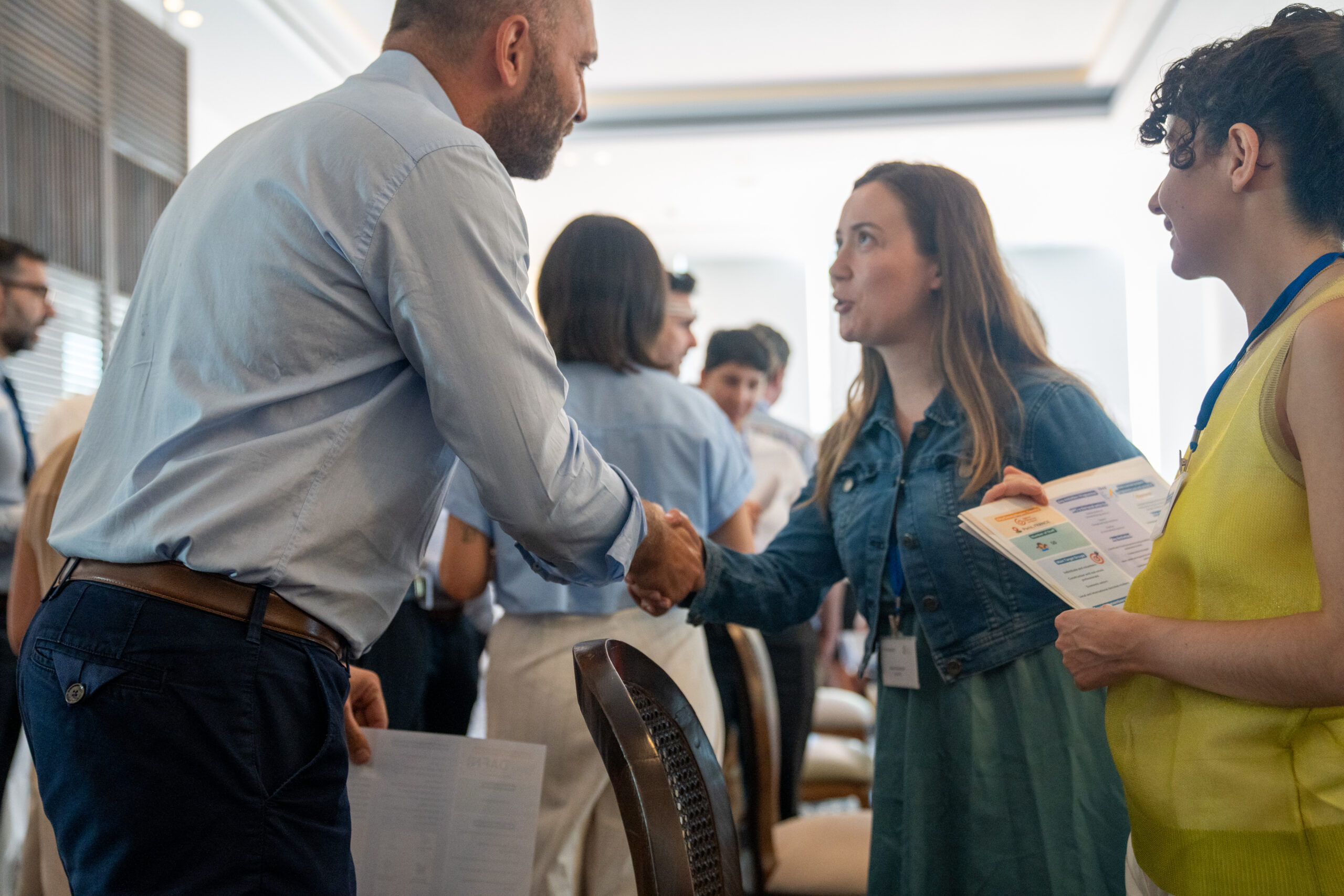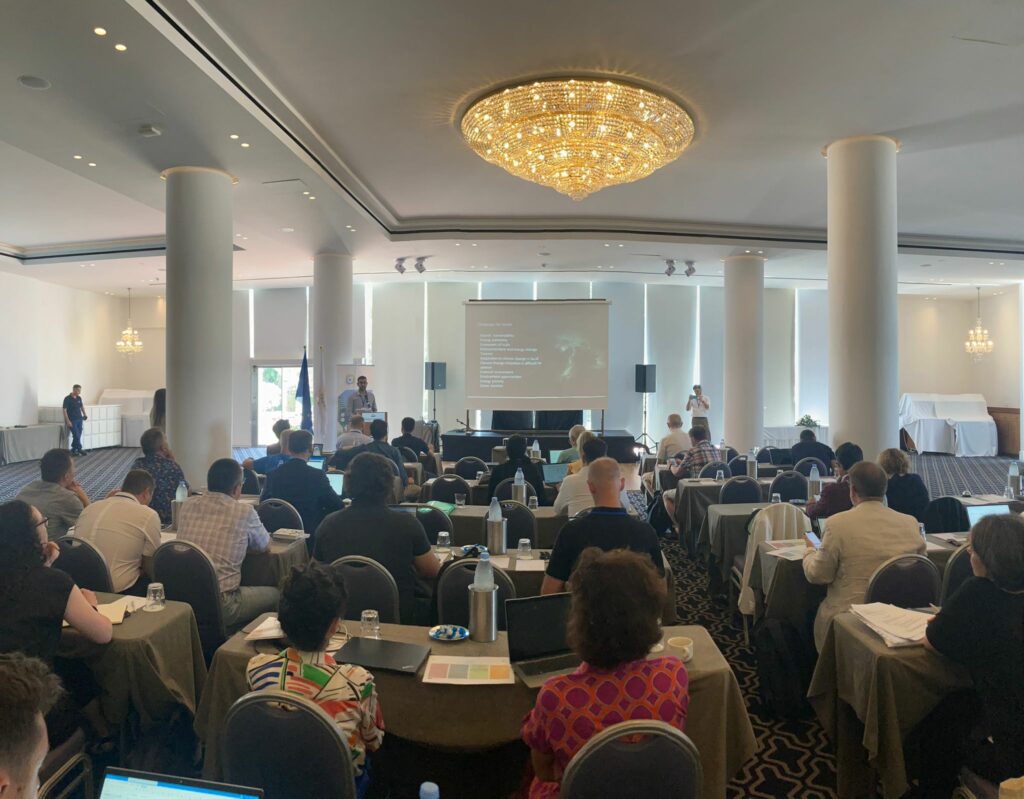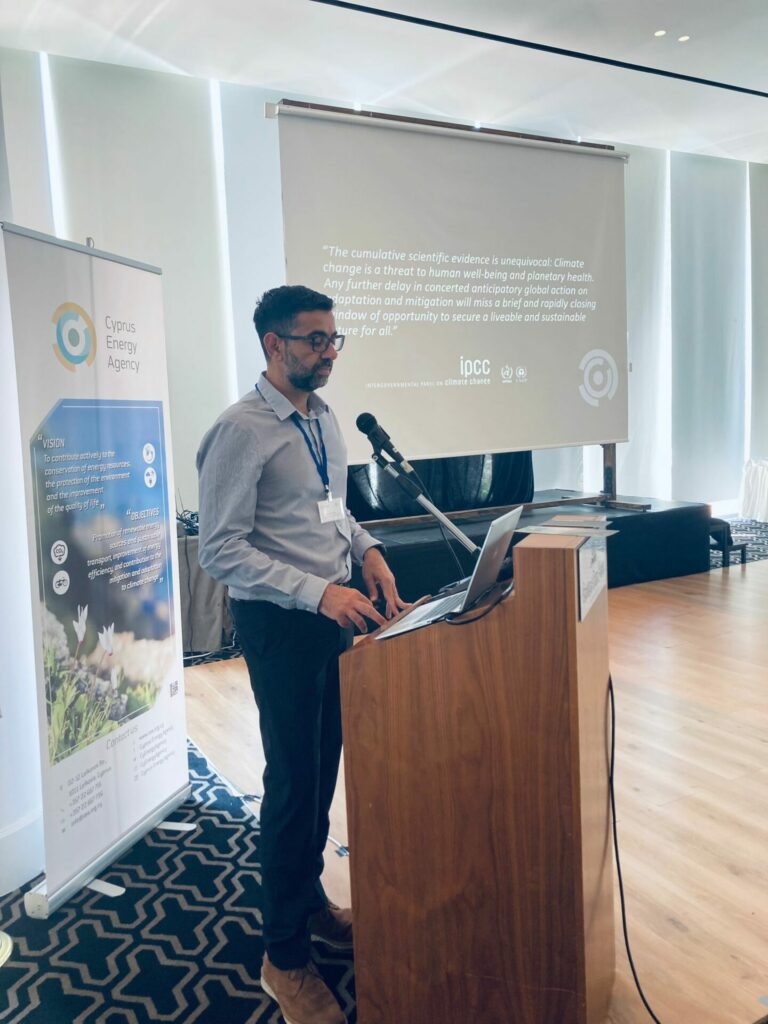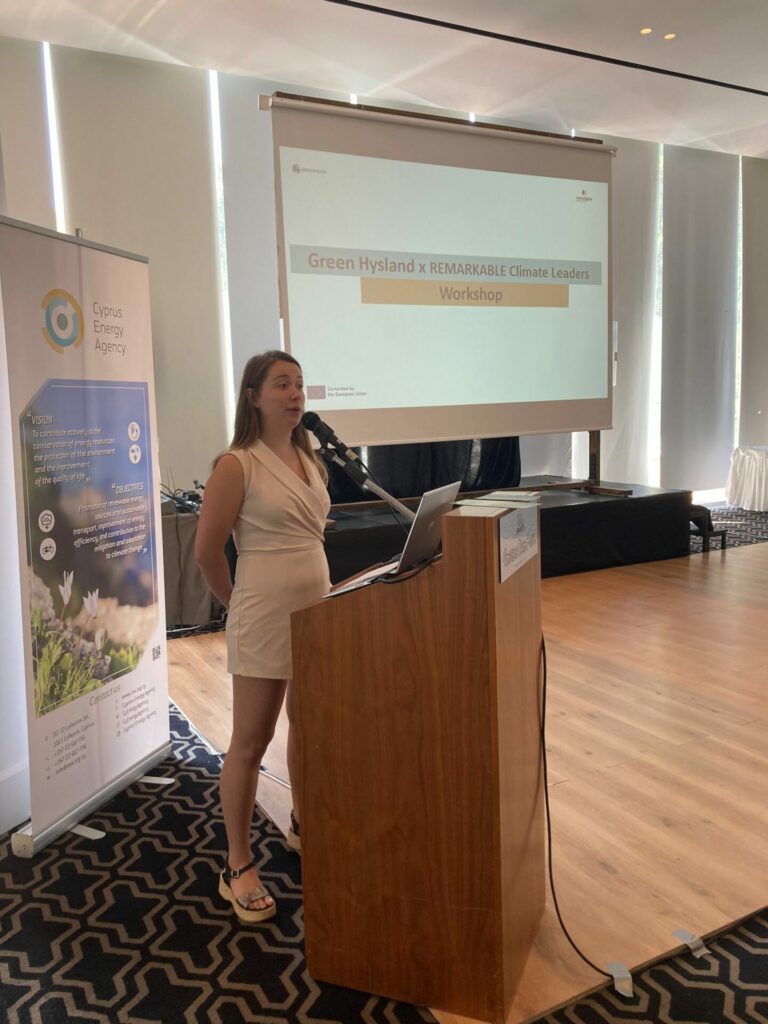Roles of local leaders and islands in the energy transition
To drive a successful climate and energy transition, it’s essential to work within systems while also recognizing the contributions of individual leaders and isolated entities. Local leaders and islands, despite their seeming isolation, can offer unique insights and innovative solutions to enhance this transition.

On June 27 2024, Cyprus Energy Agency hosted a workshop at the FEDARENE General Assembly 2024, featuring the Green Hysland and REMARKABLE projects. Held at the Grecian Park Hotel in Protaras, the event drew nearly 70 participants.
The workshop highlighted islands as innovation testbeds and emphasized the often-overlooked role of Climate Leaders in the transition process. Participants engaged in thematic discussions during a networking café, covering topics such as Climate Leadership, Green Hydrogen, and island innovation.
The event was moderated by Diana Prsancova, Project Officer at FEDARENE, and included a keynote speech by Savvas Vlachos, Director at the Cyprus Energy Agency and FEDARENE Vice-President for Smart and Sustainable Islands.

Islands face unique challenges in the energy transition, from achieving energy autonomy and sustainability to dealing with economies of scale and the impacts of climate change. However, by leveraging renewable energy sources, enhancing energy efficiency, and fostering sustainable tourism and mobility, islands can become models of resilience and innovation. Savvas Vlachos
Green Hysland: Pioneering Hydrogen Innovation on Islands
Green Hysland highlighted the importance of islands as innovation testbeds, with Mallorca selected for the first Hydrogen Valley of Southern Europe, set to be developed by 2025.
Christian Galletta (Project Officer at FEDARENE) provided an overview of the project, which includes a 7.5 MW H2 production plant powered by two PV plants of 8.5 and 5.8 MW, a hydrogen refueling station for five fuel cell buses and ten rental cars, dedicated hydrogen infrastructure, and an injection point for blending. Hydrogen will be distributed via tube trailers to a port terminal, a hotel, a municipal building, and multiple households.
Máximo Arias (Technician at IBE – Balearic Institute for Energy) presented a roadmap for hydrogen in the Balearic Islands by 2050, based on extensive techno-economic studies and public consultations to ensure stakeholder involvement.
Kostas Komninos (Director at DAFNI – Network of Sustainable Greek Islands), concluded the intervention by highlighting the steps that other islands would need to take in order to replicate the project, presenting the example of the island of Rhodes (GR), and how they will use the Hydrogen Territories Platform Tool to perform feasibility studies. (The newest version of the tool will be released by the end of 2024).


Remarkable Climate Leaders: Empowering Local Action
The workshop then spotlighted the REMARKABLE Climate Leaders project which aims to support local leaders in achieving their 2050 sustainability and climate neutrality goals.
Seamus Hoyne, coordinator of the project and Secretary General of FEDARENE, explained how REMARKABLE Climate Leaders empower local leaders to achieve climate neutrality as soon as possible through three main services: a Climate Leadership Programme, the development of Climate Neutrality Roadmaps, and the provision of Climate Neutrality Services and Solutions. Set for completion in August 2024, the project has already trained 170 climate leaders, completed 60 climate neutrality roadmaps, and established a Climate Leaders Circle with 200 members. Additionally, it has created a podcast series spotlighting climate leaders from different regions.
Francisco Puente (ESCAN, ES) and Ricardo González Mantero (EREN, ES) presented the activities implemented by the project in Spain, which focused mainly on the region of Castilla y León. The programme includes training for climate neutrality skills, co-creation of municipal Climate Neutrality Roadmaps, and experience exchange through the Climate Change Leaders’ Circle. Roadmaps for 14 municipalities feature plans to achieve 2030 targets and 2050 climate neutrality, including baseline analyses and sector-specific strategies.
Group Discussions: Deepening the Dialogue
Following the networking café, participants engaged in thematic group discussions. These sessions allowed for in-depth exchanges and collaborative problem-solving on key topics.

Conclusion: Charting a Path Forward
The workshop in Cyprus underscored the vital roles that islands and local leaders play in the climate and energy transition. By acting as testbeds for innovation and pioneering climate leadership, they demonstrate scalable solutions and strategies for achieving sustainability and climate neutrality. The collaborative efforts and shared knowledge from events like this lay the groundwork for broader systemic change, ensuring that even isolated entities and individuals can make a significant impact in the global transition to a sustainable future.

REMARKABLE Climate Leaders will build new leadership capacity across Europe through a Climate Leadership Programme designed with and for climate leaders. Through a people-centred approach, Regional Energy Agencies will support leaders of public authorities and communities in implementing transformational roadmaps and innovative solutions to achieve climate neutrality.